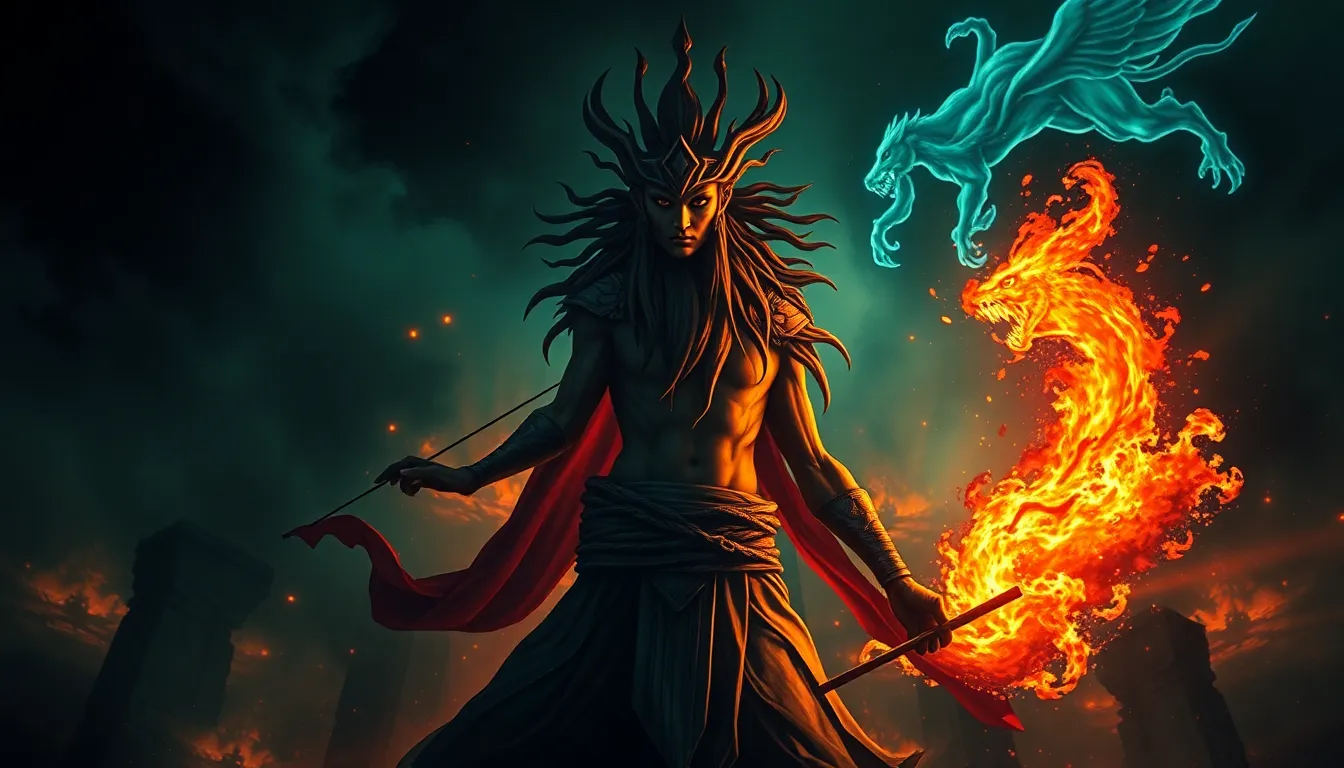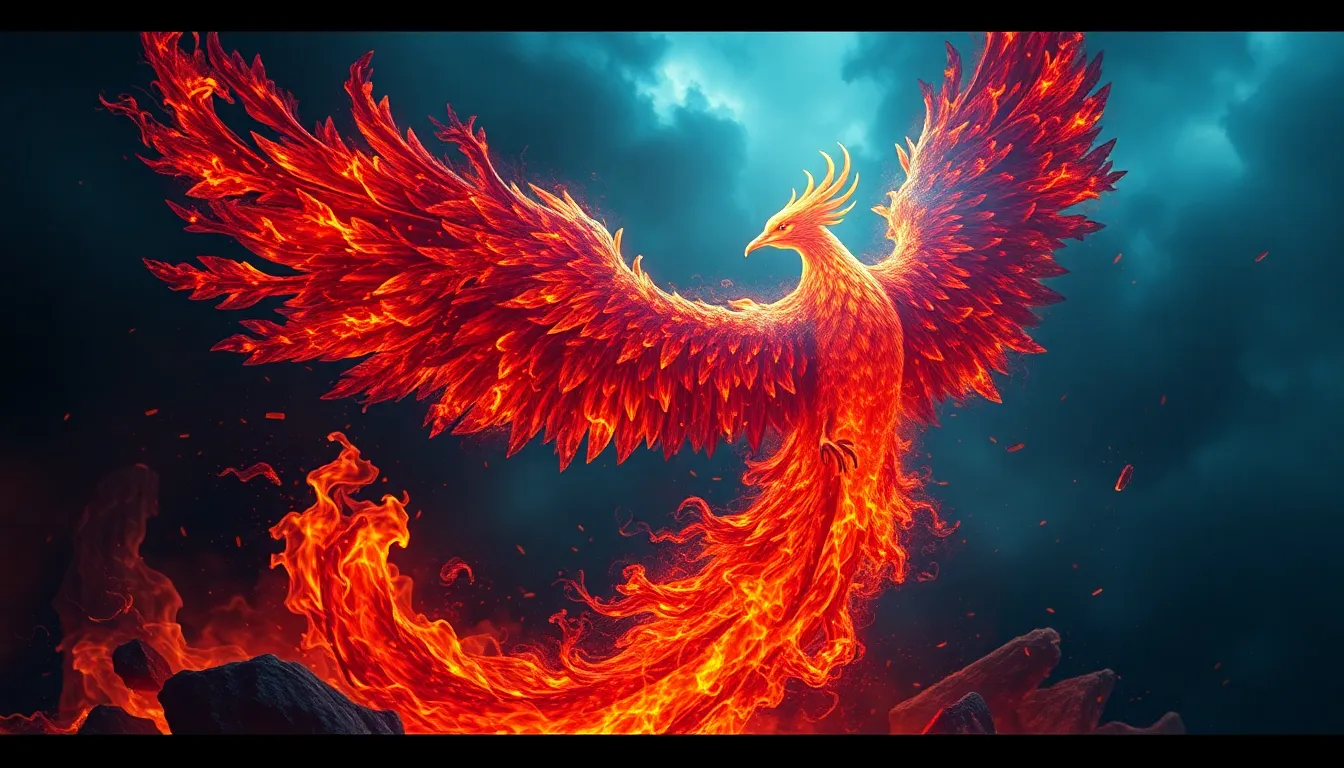Cultural Hero Myths: The Stories That Shape Our Culture
I. Introduction to Cultural Hero Myths
Cultural hero myths are narratives that feature individuals who are celebrated for their extraordinary deeds, virtues, or sacrifices. These myths often encapsulate the ideals and values of the cultures from which they emerge. They serve not only as entertainment but also as moral guides, shaping societal values and inspiring generations.
The importance of these myths lies in their ability to reflect and reinforce cultural norms, aspirations, and collective identities. They provide frameworks through which societies understand heroism, morality, and the human condition. This article aims to explore the origins, psychological impacts, notable examples, critiques, and future of cultural hero myths.
II. The Origins of Hero Myths
Hero myths have existed in various forms across cultures throughout history. From ancient Greece to indigenous tribes, these stories have been pivotal in shaping cultural narratives.
- Historical Context: Hero myths often arise in times of social upheaval, war, or change, serving as a source of hope and inspiration.
- Common Themes: Recurring themes include the hero’s journey, trials, tribulations, and eventual triumph, reflecting universal human experiences.
- Oral Tradition: Storytelling has been a vital method of preserving these myths, passed down through generations, adapting along the way.
III. The Psychological Impact of Hero Myths
Psychological theories, particularly those proposed by Carl Jung and Joseph Campbell, delve into the reasons behind the creation of hero myths. Jung’s concept of archetypes suggests that heroes embody universal symbols that resonate with the human psyche.
These heroes play crucial roles in shaping individual and collective identities, providing models for behavior and ethical decision-making. They help communities cope with adversity by embodying resilience and hope.
IV. Case Studies of Prominent Cultural Heroes
Examining various cultural heroes reveals how these narratives reflect the values of their societies:
- Hercules: In Greek mythology, Hercules represents strength and perseverance, overcoming insurmountable challenges.
- Mulan: A Chinese folk hero, Mulan defies gender norms to protect her family and country, symbolizing bravery and honor.
- Nelson Mandela: As a modern hero, Mandela’s fight against apartheid and his emphasis on reconciliation exemplify the values of justice and equality.
Each of these heroes conveys moral lessons, inspiring cultural ideals and encouraging individuals to aspire to greatness.
V. The Evolution of Hero Myths in Contemporary Society
The portrayal of heroes has transformed significantly with the advent of modern media. Traditional heroes have evolved into contemporary icons, such as superheroes in comic books and films.
- Media Impact: Film, television, and literature have reshaped the narratives around heroism, making them accessible to a global audience.
- Transformation: Characters like Spider-Man and Wonder Woman not only entertain but also address social issues, reflecting contemporary concerns.
- Technology Influence: Social media amplifies hero narratives, allowing grassroots movements to emerge and new heroes to be recognized.
VI. Cultural Hero Myths and Social Change
Hero myths often inspire movements for justice and equality. They serve as rallying points for social change and challenge existing societal norms.
- Inspiration: Historical figures like Rosa Parks and Martin Luther King Jr. have become symbols of the civil rights movement, motivating others to advocate for justice.
- Challenging Norms: Contemporary heroes challenge traditional gender roles, racial inequalities, and environmental issues, paving the way for progress.
- Examples: Young activists like Malala Yousafzai and Greta Thunberg embody the spirit of modern heroism, pushing for educational and environmental reforms.
VII. Critiques of Hero Myths
While hero myths can inspire, they also have potential dangers. Idolizing heroes can lead to unrealistic expectations and the oversight of their flaws.
- Idolization Dangers: Placing heroes on pedestals may obscure their complexities and the challenges they faced.
- Flawed Heroes: Many revered figures have moral ambiguities, and their stories can offer lessons on the complexities of human nature.
- Marginalized Voices: Traditional narratives often exclude diverse perspectives, necessitating a broader representation in hero myths.
VIII. The Role of Hero Myths in National Identity
Nations often construct hero myths to foster a sense of unity and identity. These heroes are frequently tied to significant historical events.
- National Unity: Figures like George Washington and Mahatma Gandhi serve as symbols of national pride and collective identity.
- Historical Impact: Events such as wars or revolutions shape the narratives around national heroes, influencing how history is remembered.
- Patriotism and Myth-making: The interplay between hero myths and national narratives can strengthen patriotism but also risk oversimplifying complex histories.
IX. The Future of Cultural Hero Myths
The future of cultural hero myths is likely to reflect evolving societal values. As cultures become more inclusive, new heroes will emerge from diverse backgrounds.
- Predictions: Future hero narratives may focus on collaboration and community rather than individualism.
- Diversity: There is potential for heroes from underrepresented groups to take center stage, enriching the tapestry of cultural narratives.
- Inclusivity: Highlighting diverse experiences will be crucial in shaping more relatable and representative hero myths.
X. Conclusion: The Enduring Power of Hero Myths
Cultural hero myths are enduring narratives that shape our understanding of heroism, morality, and identity. They reflect the values of their cultures and have the power to inspire social change. As society evolves, so too will the stories we tell about our heroes, presenting opportunities for greater inclusivity and representation. The stories of cultural heroes will continue to resonate, guiding us through the complexities of our shared human experience.



